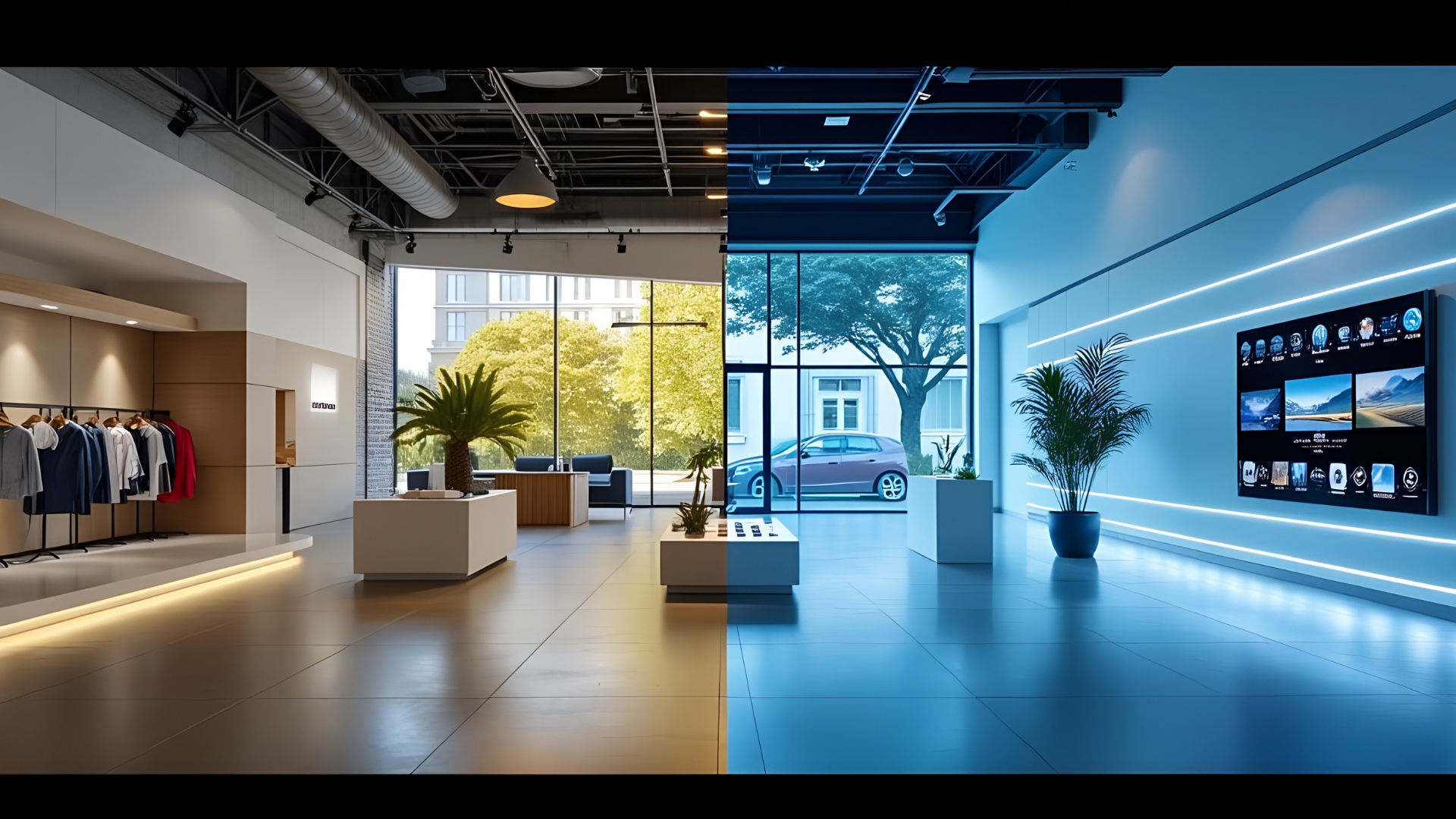At Rubenius Interior Wellbeing, we’ve closely observed how well-designed demo centers can bridge the gap between curiosity and conviction — turning product exploration into engaging, educational experiences that influence decision-making.

AR and VR are the engines of modern demo centers. Whether showcasing a digital twin of industrial equipment or simulating real‑world scenarios for healthcare training, these tools create powerful narratives that customers remember.
Beyond just a demo room, these spaces act as interactive environments where visitors can navigate product journeys step by step. Lighting, soundscapes, and touch‑based installations ensure engagement at every point.
Seamless integration with data dashboards, IoT devices, and real‑time analytics makes demo centers more than showrooms — they become digital ecosystems. For instance, Bangalore‑based centers are using AI‑enabled platforms to personalize demonstrations based on visitor profiles.
The rise of phygital studios — blending physical space with digital content — has given demo centers unmatched versatility. From holographic displays to projection mapping, these hybrid setups allow brands to adapt quickly to diverse audiences.
.jpg)
As India’s innovation capital, Bangalore has emerged as a leader in demo center design. Global and Indian organizations alike are building interactive spaces here to showcase their cutting‑edge solutions. Centers such as the PwC Experience Centre, TCS Innovation Labs, Wipro Centre of Excellence, and Holozone 3D Immersive Studio highlight the city’s commitment to immersive engagement. Alongside these, Rubenius projects like the Scaler Innovation Lab and the Kewaunee Experience Center demonstrate how thoughtful design and technology can elevate the demo experience.
.jpeg)
In 2025, demo centers are no longer optional — they are a strategic necessity. By blending immersive technology, AR/VR exhibition design, and phygital studio experiences, they help organizations deliver more than a pitch — they deliver impact.
At Rubenius Interior Wellbeing, we design demo centers that go beyond presentation, creating interactive experiences that spark curiosity and drive results.
Ready to transform your customer engagement? Connect with Rubenius Interior Wellbeing and bring your demo center vision to life.
Q1. What makes a demo center different from a showroom?
A showroom displays products, but a demo center immerses visitors in interactive, technology-driven experiences that help them understand real-world applications.
Q2. Which industries benefit most from demo centers?
Sectors such as technology, healthcare, manufacturing, education, and retail are leading adopters due to the complexity and innovation of their offerings.
Q3. How does immersive technology enhance a demo center?
AR/VR allows customers to experience solutions in realistic simulations, making complex technologies and concepts intuitive and easy to grasp.
Q4. Why is Bangalore considered a hub for demo center design?
Bangalore’s strong tech ecosystem, global corporate presence, and pioneering projects from firms like Rubenius have positioned it as a leader in immersive experience design.